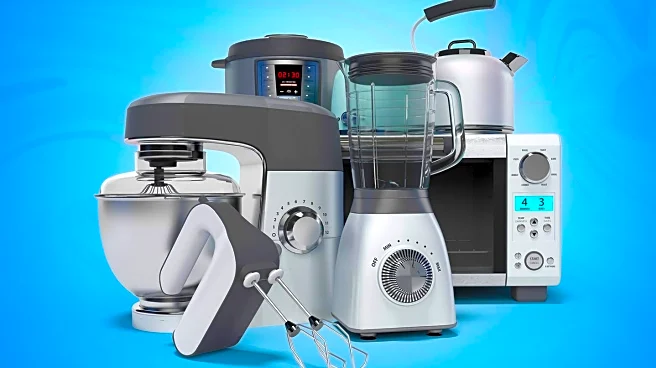What's Happening?
Aeroflow Health, a healthcare company known for delivering medical products and services, has formed a partnership with AlohaCare to improve access to essential medical equipment for patients across Hawaii. AlohaCare, a non-profit health plan founded
by Hawaii’s Community Health Centers, primarily serves Medicaid insurance holders on various Hawaiian islands. This collaboration aims to serve over 400,000 Medicaid enrollees, including children and adults, by providing streamlined access to durable medical equipment (DME) necessary for managing conditions such as maternal health, sleep disorders, incontinence, and diabetes. The initiative includes instant insurance verification, direct access to prescribed equipment, convenient home delivery, and specialist guidance, all designed to simplify the healthcare experience for patients.
Why It's Important?
This partnership is significant as it addresses the healthcare needs of underserved communities in Hawaii, particularly those reliant on Medicaid. By ensuring access to necessary medical equipment, Aeroflow Health and AlohaCare are enhancing the quality of care and enabling patients to manage their health conditions independently at home. The initiative also includes multilingual support, which is crucial for Hawaii’s diverse population, ensuring that language barriers do not impede access to healthcare services. This collaboration reflects a broader trend in healthcare towards patient-centered approaches that prioritize accessibility and convenience, potentially setting a precedent for similar initiatives in other regions.
What's Next?
The partnership between Aeroflow Health and AlohaCare is expected to continue evolving, with potential expansions in service offerings and geographic reach. As the collaboration progresses, stakeholders may monitor its impact on patient outcomes and healthcare costs, potentially influencing policy decisions regarding Medicaid and healthcare accessibility. Additionally, other healthcare providers and insurers might consider similar partnerships to enhance service delivery and patient satisfaction, particularly in underserved areas.
Beyond the Headlines
This development highlights the ethical imperative of ensuring equitable healthcare access, particularly for marginalized communities. By prioritizing accessibility and convenience, the partnership addresses systemic barriers that often prevent patients from receiving necessary care. The focus on multilingual support also underscores the importance of cultural competence in healthcare, which can lead to improved patient engagement and outcomes. Long-term, this initiative could contribute to reducing healthcare disparities and fostering a more inclusive healthcare system.















